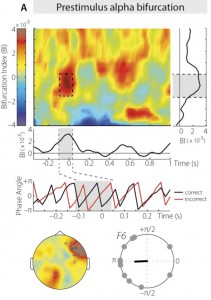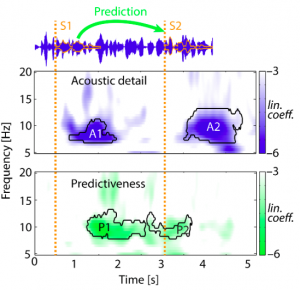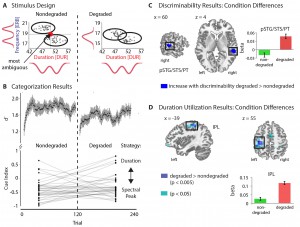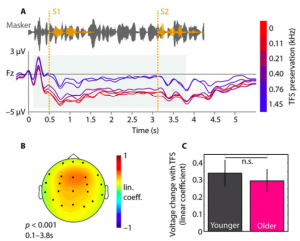Time flies: The Auditory Cognition group aka The Obleser Lab has just entered its fifth year. We took off properly in early 2011, so this is a good point in time to briefly recap. We have had four exciting and very productive years so far, and this fifth year is bringing a lot of exciting turn-over as well. First, new faces have joined our group:
Dr. Sophie Herbst a psychologist with keen interests in time perception joined us as a postdoc, coming from Niko Busch’s lab at the Charité Berlin.
Dipl.-Ing. (FH) Lorenz Fiedler joined us to help us build real-time links between EEG and hearing aids, as planned in our Volkswagen project.
Second, a few great talents have moved on with the beginning of 2015:
Antje Strauß just received her Dr. rer. nat. (PhD) from the University of Leipzig and is now at the GIPSA lab, University of Grenoble, France.
Dr. Molly Henry and Dr. Björn Herrmann have both taken up new Postdoctoral jobs at the University of Western Ontario, London, Ontario, CA. They will be working with Jessica Grahn and Ingrid Johnsrude, respectively.
Dr. Alex Brandmeyer could not resist a fantastic offer by Dolby Systems Inc., San Francisco to join them as a research scientist.
Earlier in autumn 2014 already, Julia Erb had taken up a postdoc position with Elia Formisano at the University of Maastricht.
… the best of luck and many thanks to all the new AC alumni!
Lastly, Jonas as head of the group has just been appointed Professor for Research Methods and Statistics at the (newly-founded) Department of Psychology, University of Lübeck, Germany.
These great news also imply that the Auditory Cognition group as a whole will, as conceived by the Max Planck Society when providing this five-year start-up funding, slowly transplant to a new place, namely: Lübeck, over the year to come. Watch this space! Yet, the labels “auditorycognition.com” and “obleserlab.com” will surely remain active and move with us.




